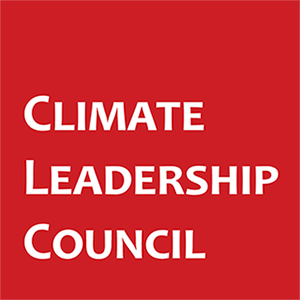Polling from battleground states shows strong support for the policy among voters
WASHINGTON, DC – By enacting ambitious climate policy through a carbon fee, the U.S. can implement a border carbon adjustment (BCA) system that will deliver emissions reductions, a more vibrant U.S. economy, and a new era of global climate and trade cooperation, according to a report released by the Climate Leadership Council on Wednesday. Polling of voters in key swing states also released on Wednesday shows broad support for BCAs among voters across the political spectrum.
“As global leaders convene at COP26 in Glasgow next week, delegates are looking for opportunities to increase climate ambition and nurture economic growth,” Council Vice President of Policy Catrina Rorke said at a webinar to release the report. “Border carbon adjustments are emerging as an attractive tool to reduce global emissions while conferring a new commercial advantage on efficient, low-carbon manufacturers.”
The swing state poll was conducted by a bipartisan research team on behalf of Americans for Carbon Dividends, the Council’s advocacy arm. Key takeaways include:
- 70 percent of voters support a border carbon adjustment as a component to a national climate plan [Republican (61 percent), Democratic (81 percent), Independent (67 percent)].
- 86 percent of voters say that any U.S. climate policy needs to ensure other countries do their part to reduce emissions [Republican (83 percent), Democratic (92 percent), Independent (82 percent)], with nearly 60 percent agreeing strongly.
- 82 percent of voters say that U.S. climate policy should discourage products made with higher carbon pollution and incentivize products made in America with less carbon pollution [Republican (74 percent), Democratic (90 percent), Independent (81 percent)], with 52 percent agreeing strongly.
- Two-thirds of voters say they would be more likely to vote for a pro-BCA candidate.
“In all our experience with climate policy polling, we have never seen the level of broad support, across political ideology, that we see for a border carbon adjustment,” Council CEO Greg Bertelsen said. “Even more striking is the intensity of support for a national climate policy that ensures other countries do their part and incentivizes more manufacturing in the U.S. with lower carbon emissions. These polling results confirm that voters in arguably the most important states for determining the balance of power in Washington over the next three years are strongly supportive of a border carbon adjustment as a component of a national climate plan.”
The report, Don’t Believe the Hype: A BCA Is Doable (and We’re Doing Most of It Already), also found the following:
- The U.S. has the data, the expertise, and the enforcement capability to design and implement border carbon adjustments that conform to our existing trade obligations.
- It’s in the U.S.’s strong interest to spearhead the design of border carbon adjustments and shape the future of international trade.
“To achieve deep decarbonization of the global economy, we must align climate and trade,” Rorke said. “Border carbon adjustments are vital to a climate-stable future – and the obstacles to implementation are both overstated and entirely surmountable. When paired with a domestic carbon price, border carbon adjustments can be implemented quickly to enhance American competitiveness and deliver a high-ambition domestic carbon mitigation strategy. Without them, we risk failing to address the climate challenge appropriately.”
Wednesday’s webinar also featured a panel discussion with Brian Flannery, visiting fellow at Resources for the Future; Shuting Pomerleau, climate policy analyst at the Niskanen Center; and Sarah Stewart, executive director at the Silverado Policy Accelerator.
The Climate Leadership Council works with a diverse coalition of businesses, environmental, and opinion leaders to advance the four-part carbon dividends framework as the most cost-effective, equitable, and politically viable climate solution. Enacting the carbon dividends framework would unleash America’s full innovative capacity against climate change and cut emissions in half by 2035 on its own.

